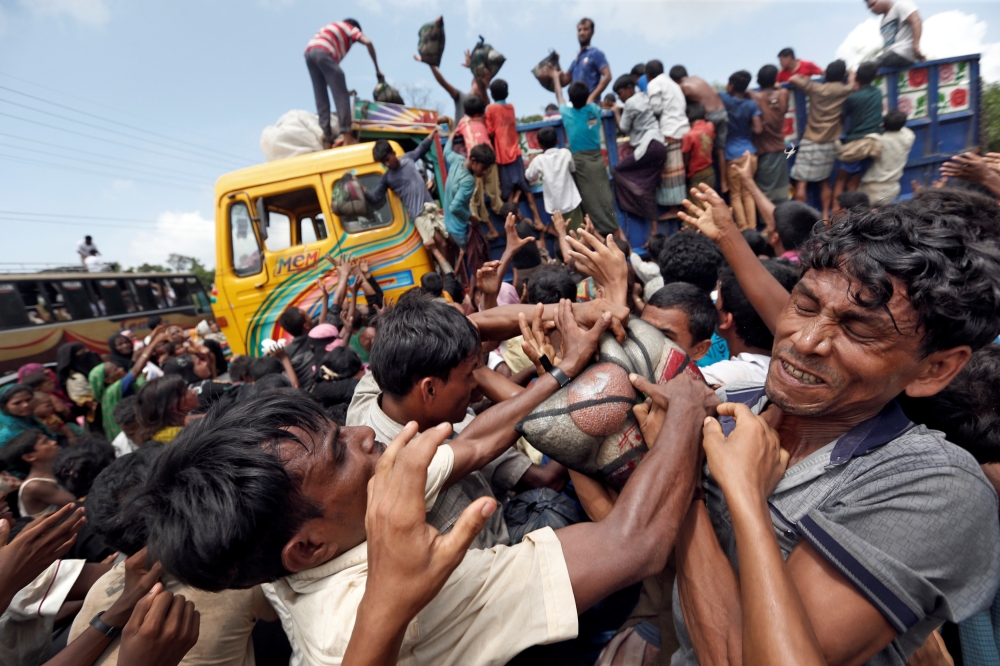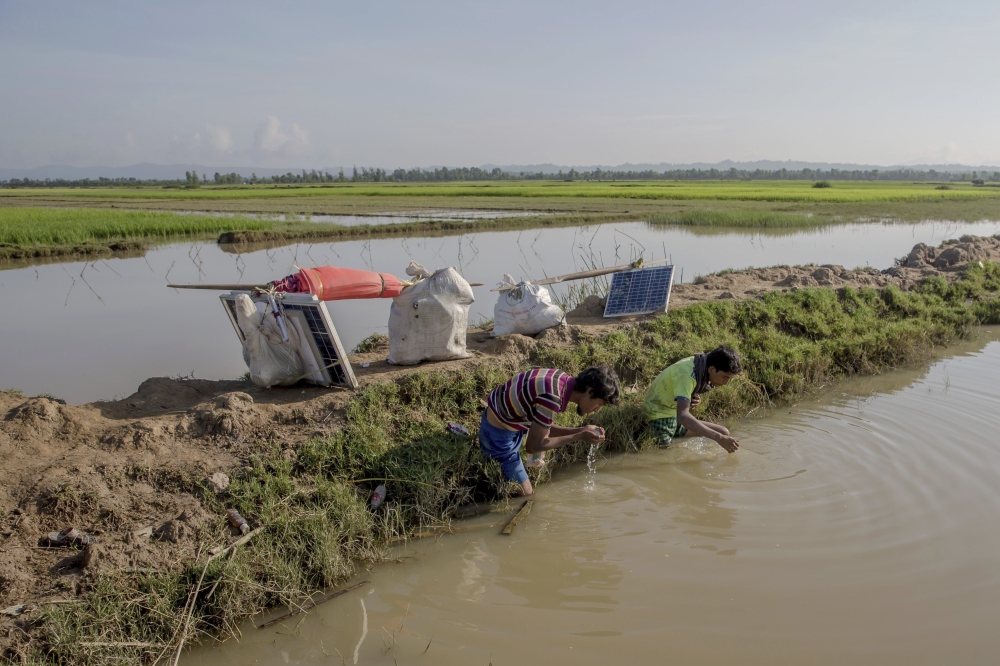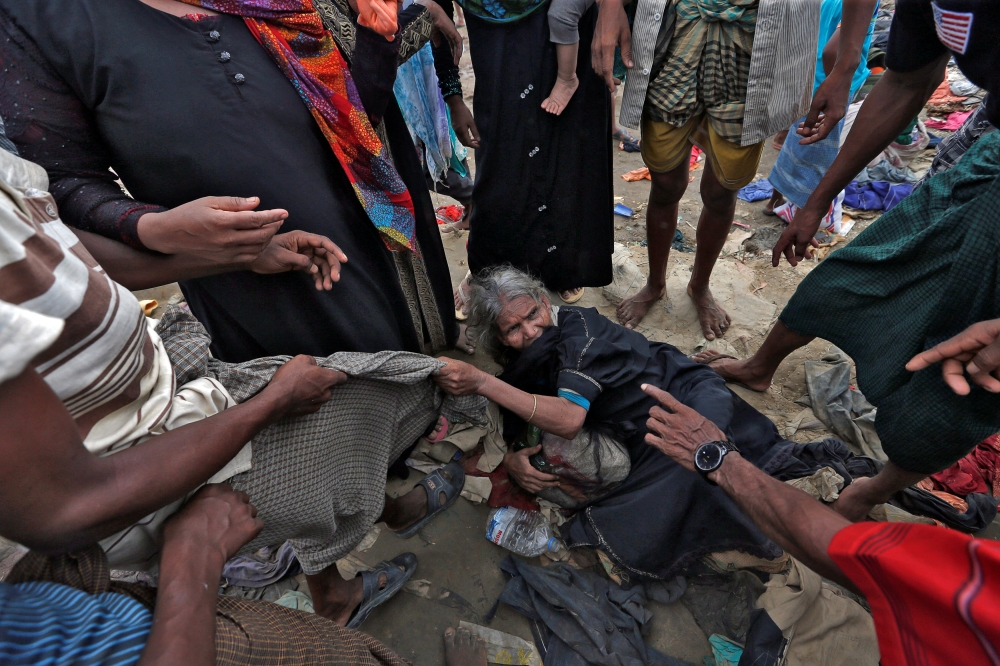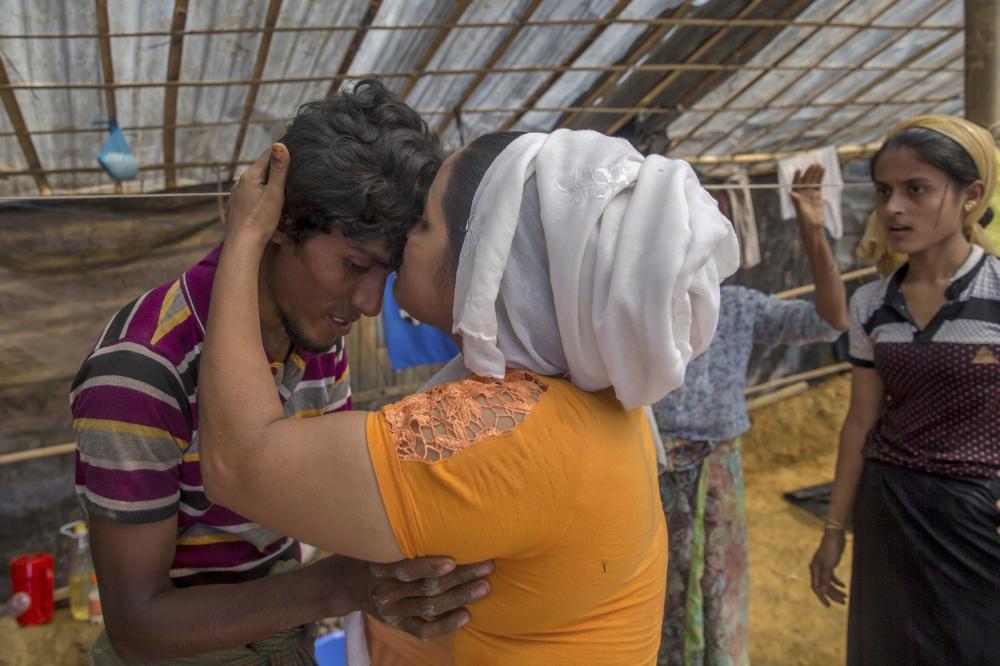





توقف تدفق اللاجئين الروهينغا تقريبا بعد نحو شهر من عمليات التطهير العرقي على يد الجيش البورمي، والتي أدت إلى تهجير نحو 430 ألفا من أفراد هذه الأقلية المسلمة، بحسب ما أفاد عريف الإسلام المسؤول في حرس الحدود البنغلاديشي أمس (السبت)، الذي أشار إلى أن حرس الحدود لم يسجل وصول أفراد من الروهينغا في الأيام الأخيرة، مضيفا «الموجة انتهت».
في السياق نفسه، أعلنت الأمم المتحدة أيضا أن التدفق تراجع، مقدرة أن 429 ألفا من الروهينغا عبروا الحدود إثر حملة القمع التي بدأها جيش بورما في ولاية راخين غرب بورما في 25 أغسطس. ولم تقدم بنغلاديش ولا الأمم المتحدة تفسيرا لتراجع عدد اللاجئين.
في سياق متصل، تواصلت الاضطرابات أمس في راخين، إذ زعم قائد جيش بورما أن ناشطين روهينغا فجروا مسجدا، فيما اتهمت منظمة حقوقية جيش بورما بالتسبب في حرائق في المنطقة لمنع عودة الروهينغا اللاجئين.
في السياق نفسه، أعلنت الأمم المتحدة أيضا أن التدفق تراجع، مقدرة أن 429 ألفا من الروهينغا عبروا الحدود إثر حملة القمع التي بدأها جيش بورما في ولاية راخين غرب بورما في 25 أغسطس. ولم تقدم بنغلاديش ولا الأمم المتحدة تفسيرا لتراجع عدد اللاجئين.
في سياق متصل، تواصلت الاضطرابات أمس في راخين، إذ زعم قائد جيش بورما أن ناشطين روهينغا فجروا مسجدا، فيما اتهمت منظمة حقوقية جيش بورما بالتسبب في حرائق في المنطقة لمنع عودة الروهينغا اللاجئين.
